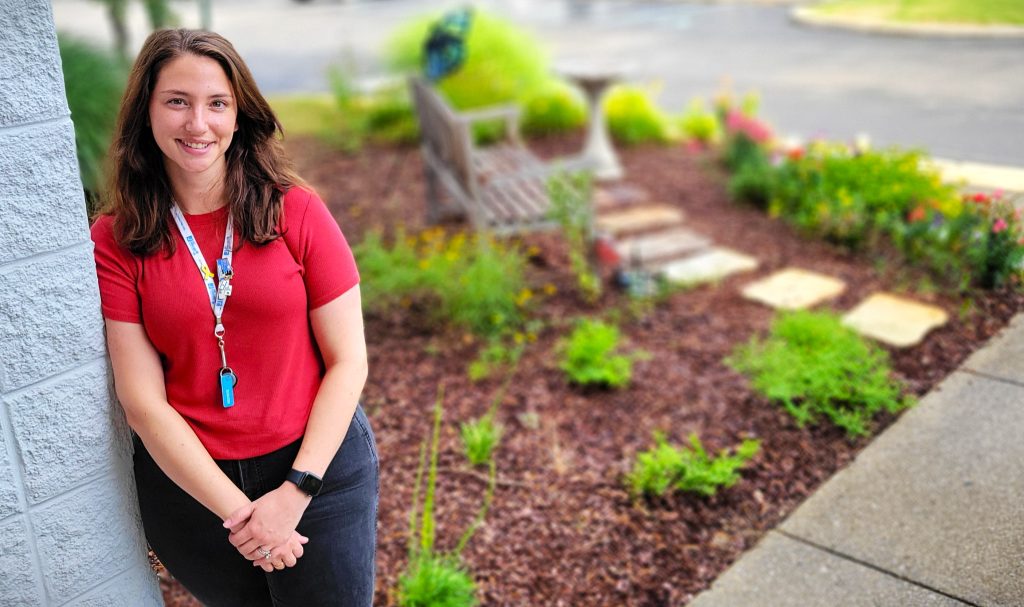By Zoe Weil
Do you grieve the deaths of innocent Palestinians and believe in Israel’s right to exist? You are, by definition, a Zionist. Zionism is the movement for Jewish self-determination and statehood in the Jewish ancestral homeland, the land of Israel.
When someone asks me when I started working at the Levite Jewish Community Center, I usually pause before answering: “Right after October 7.” I am solemnly aware that I’m referencing one of the most tragic days in modern Jewish history in response to what’s typically a lighthearted “getting to know you” question.
On October 8 I got a call from CEO Brooke Bowles. Instead of a few hours a week on a project we had discussed, she asked if I could start full time on Monday, October 9. With no road map for navigating a Jewish institution in the wake of such devastation, she knew she needed all hands on deck to support our members.
And so I began my work at a Jewish institution at a time that was devastating, complicated, and deeply significant.

Looking back on the past year and a half, I’m proud of what The J’s Office of Jewish Life has accomplished. Alongside staff member Shannon Brasovan (now chief experience officer), we’ve leaned into celebrating Jewish joy and peoplehood — holding tight to what unites us in the face of rising and increasingly visible antisemitism online and in the streets.
Never-ending work
I think I speak for many Jewish professionals when I say that our work feels never-ending. We combat antisemitism from 9 to 5 only to come home and see friends’ social media posts equating Jews, as a people, with warmongers. It’s exhausting. It’s demoralizing. And it’s dangerous — as we see from the violent attacks and murders of Jews in the name of “justice.”
In this environment it’s more important than ever to be proudly and visibly Jewish. It’s also crucial to intentionally educate gentiles about the Jewish experience in the wake of the October 7 Hamas attacks and the ongoing war in Gaza.
One recurring challenge I’ve encountered in these conversations is the demonization of Zionism. Online and at protests, I’ve seen signs that read, “No Zionists Allowed.” I’ve seen people post hateful declarations about Zionists, followed by their own disclaimers: “This isn’t antisemitic.” And yet, many of these same people conflate Zionism (which is absolutely part of Jewish peoplehood) with oppression or indifference to human suffering.
Let’s be clear: while this is an op-ed, the definition of Zionism is not a matter of opinion. Zionism is the movement for Jewish self-determination and statehood in our ancestral homeland, the land of Israel. That’s it.
“Believing that Jews have an ancestral connection to the land of Israel does not mean we believe no one else does. There is space for grief, compassion, and complexity. We must make room for it.”
Do you believe Israel has the right to exist? You’re a Zionist.
Do you believe Israel has the right to exist and support a ceasefire and increased humanitarian aid in Gaza? Still a Zionist.
Do you grieve the deaths of innocent Palestinians and believe in Israel’s right to exist? You are, by definition, a Zionist.
The vast majority of Jews are Zionists. That connection — historical, religious, cultural, familial — is not theoretical. It is deeply personal. It is part of our peoplehood. Denying that reality is not just inaccurate; it’s erasure.
Being clear… and vulnerable
To be clear and vulnerable in my own convictions: I am a Zionist. I also pray for a ceasefire. I pray for the release of all Israeli hostages, and for safe, sustained humanitarian aid to reach civilians in Gaza.
While it can seem nearly impossible to change people’s hearts and minds — especially when they believe their views are grounded in justice — my hope is to encourage more people to embrace nuance. I hope that before someone posts about how “All Zionists are murderers,” for example, they take a moment to consider how that might land with the Jewish community. For many of us, that reads as “All Jews are murderers.”
I also hope they’ll consider this: Zionism is not an evil ideology. Believing that Jews have an ancestral connection to the land of Israel does not mean we believe no one else does. There is space for grief, compassion, and complexity. We must make room for it.
At the end of the day, I believe we’re all better served (and safer from violent attacks) when we approach each other with curiosity rather than condemnation, and with the humility to recognize that identity, history, and pain are never one-sided. Being Jewish, being a Zionist, and being a person who cares deeply about justice are not mutually exclusive. In fact, for many of us, they are inseparable.
Zoe is director of special projects within the Office of Jewish Life at The J and an adjunct professor of history at the University of Alabama at Birmingham, where she teaches a course on the Holocaust.
